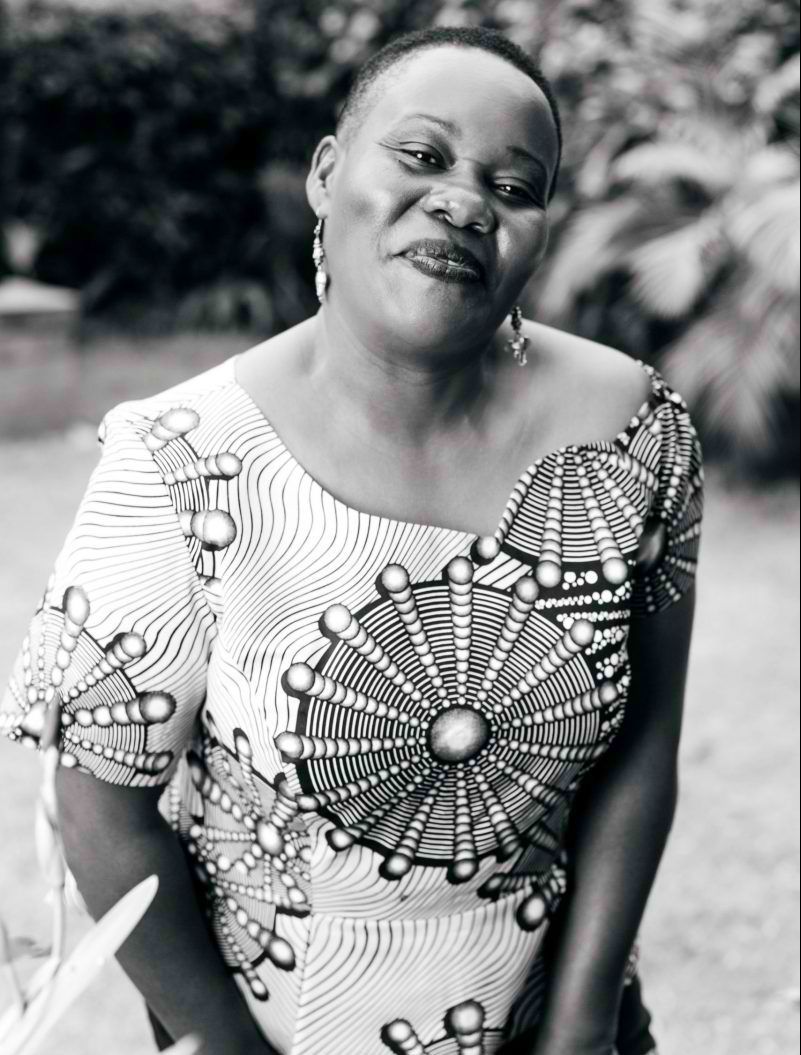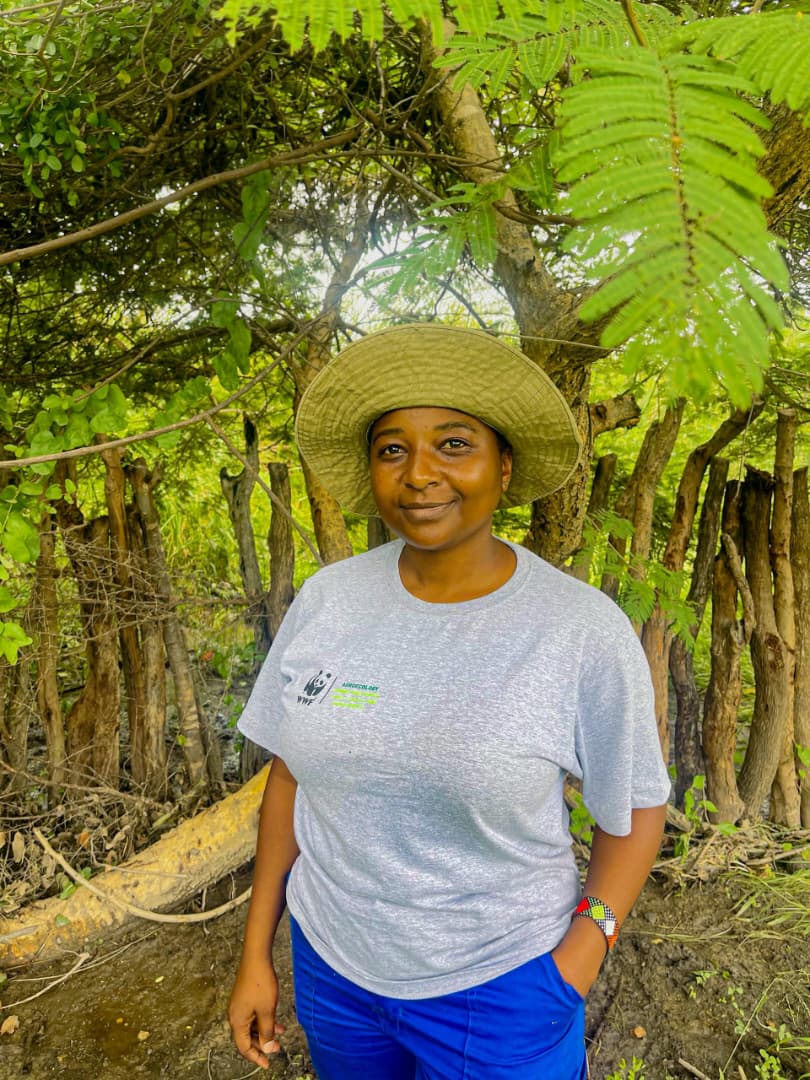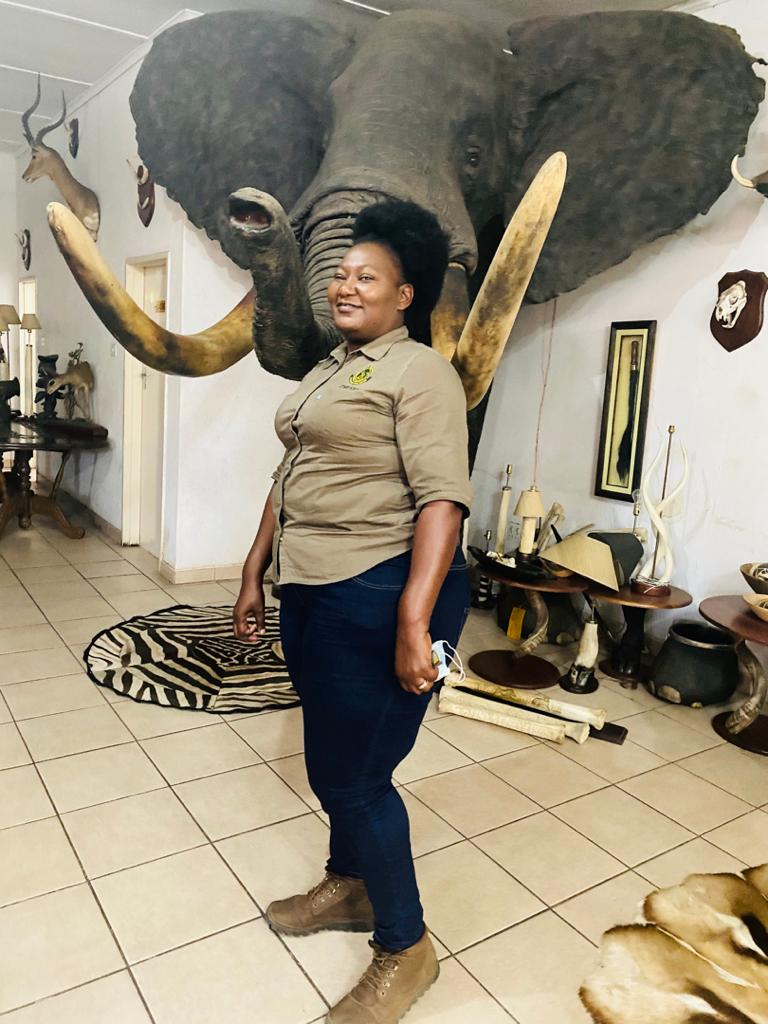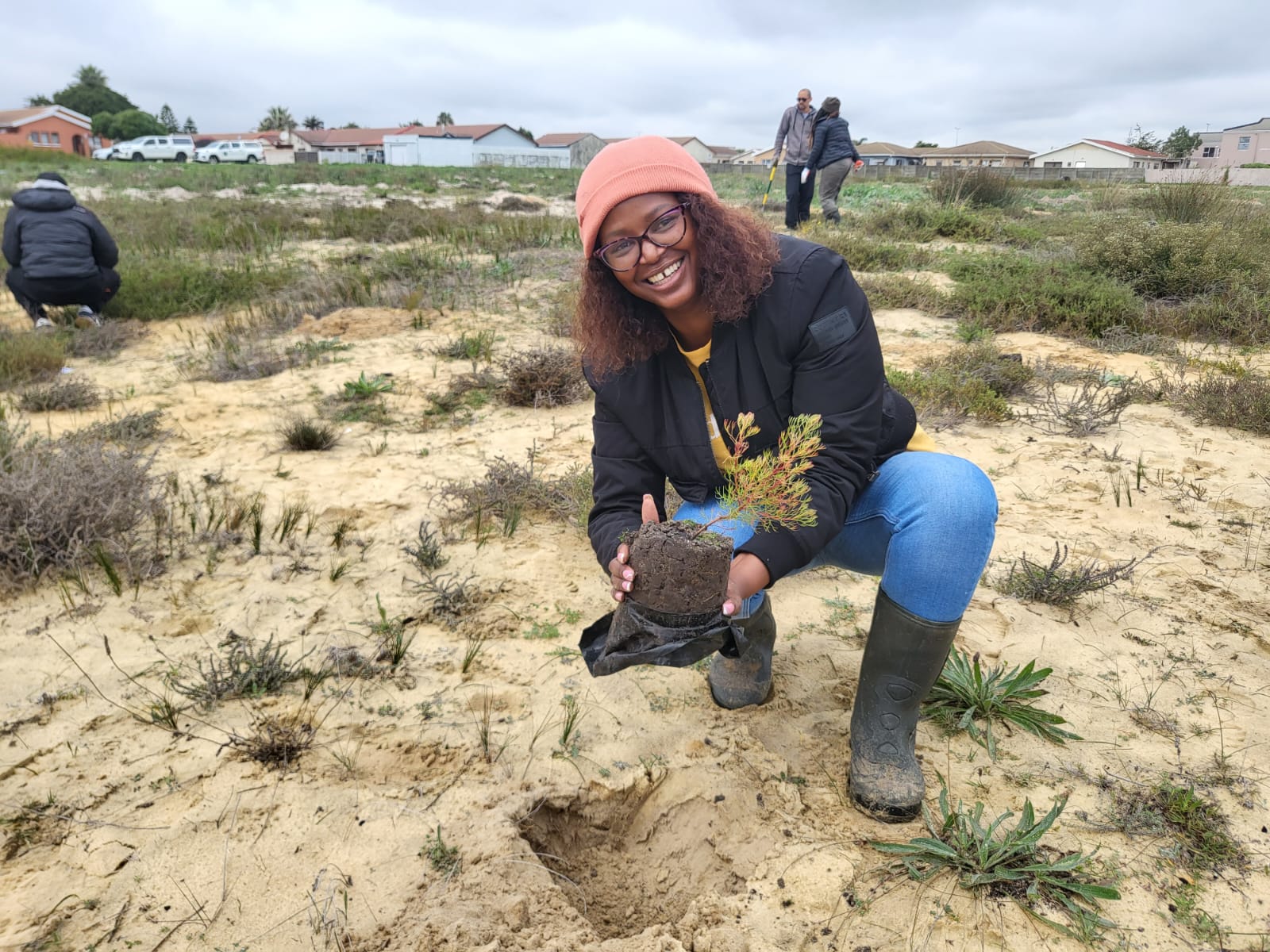Kenyan conservation will not work unless we spend time with the people, understanding their aspirations, pain, and disappointments.
Founder of CHD Conservation Kenya and Director of Government Relations at Elephant Protection Initiative, Dr. Winnie Kiiru, has been working in conservation for 25 years. Her field experience in Kenya and beyond has helped her understand the complexities of managing wildlife in human-dominated landscapes. She believes that we are losing our wildlife because everyday decisions are made without compassion. To this end, Winnie’s approach towards wildlife conservation is driven by compassion, both for the people and the wildlife.
She shares her story with Damaris Agweyu.

Winnie, you come across as a very self-assured woman who is not afraid to use her voice. Does this come naturally to you?
As a child, I was always asked to speak on behalf of others. Maybe this was a result of being the firstborn.
My mother had me before she got married; my siblings were born when I was around six years old. I never had the luxury of being childish. I learnt that unless I spoke up, and very quickly, I would bear the brunt of my younger siblings' mistakes. I later realised that I had the gift of communicating, not just my thoughts, but those of other people as well.
It was high school that crushed me.
I realised there was a way I "needed" to look to be accepted. My skin needed to be lighter, my hair longer. My schoolmates told me I had knocked knees, something I hadn’t previously considered. I got a lot of mean comments. But then again, I gave as good as I got. That being said, at the end of high school, I didn't get the grades to do anything I wanted. I had lost my voice.
What was it that you wanted to study?
I thought maybe I'd have made a great lawyer.
I went to university kicking and screaming because, first of all, I had to go to the National Youth Service, which was brutal. Secondly, I was going to train to be a teacher. I never wanted to be a teacher.
As soon as I completed my university degree, I got married. I didn't have the confidence of my earlier years, so I didn't choose, I was chosen. It makes me a little sad because I saw what was happening around me, but I didn’t have a voice. What I did have was resilience, the ability to stick it out.
It was when I started working in conservation that I started finding my voice again. Staying in the bush for extended periods gave me a new sense of freedom. I found the thrill that I'd been missing through high school, through university, and into marriage. And that continued as I went to study for my master’s degree.
How did you transition into the world of conservation?
I was just doing life, and when I found myself in a space that energised me, I immersed myself in it.
My journey in conservation has been my greatest gift because it opened up a whole world that I would wish for any woman. I've had a privileged life in that way.
When I completed my master’s degree, I got a job at Kenya Wildlife Service. With time, I got a bit disillusioned with this job and decided to shift gears into the world of multilevel marketing. I was using a different energy in this space, and while I excelled at what I did, I started to feel a little insecure again.
I finally found my way back into conservation through a job with the Born Free Foundation. It gave me a lot of opportunities to travel and speak. I would give talks at fundraising events with serious heavy hitters, and in that process, it occurred to me that I was good at this. It built up my confidence.
My job didn't pay a lot, but it gave me a lot of exposure. At some point, I decided to leave my job and go to write my PhD. I applied to Kenyan universities but didn't get accepted. Then I spoke at an event at the Royal Geographic Society in London. Afterwards, a couple in the audience followed me and asked how much money I needed to put more research into the address I had given. I told them, and they wrote a cheque to fund my research. They asked for nothing in return. I ended up doing my PhD at the University of Kent with additional support from Born Free Foundation.
Going for my PhD was one of the most challenging things I've ever done. I see this as a time when I gained a doctorate but lost everything.
Meaning?
When I came back, I had to go back to the drawing board. Once again, my confidence was shattered.
I have two boys who I lost in a sense because of my long absence from home. I had to ask my long-term house-help to leave at some point, and my younger son was not happy about this. His reaction made me feel like I had been replaced. That hurt like hell. My eldest son had done his A levels in South Africa and was going to university in the US. My absence had resulted in his lacking confidence.
It took a lot of work to rebuild, in my children, the assurance that I was still their mother, who loved them unconditionally and cared that they succeeded.
Knowing what you know now, what would you do differently?
What has made me who I am is that I dared to take this academic journey. The only thing that I would do differently would be to get insights from people who had done the same thing. That way, I may have been a lot less surprised at the end of my experience.
I had illusions that once I finished my PhD, I would automatically get a job. This wasn't the case. I taught at the university for three years without pay. During this period, I underwent some severe PhD poverty, as some called it. My financial situation was so dire that I had to borrow money to buy a ticket to get to my graduation.
I had no idea how my home situation would change and how my children would be affected. Writing a PhD takes a lot, and you have to put other commitments on the back burner for a while. In the meantime, life goes on. Some people in your life will become resentful, some will be understanding, and some will be helpless.
People assumed that because I was in England, I was okay. But I was suffering from the loneliness that comes from being away from home and from the racism. I was not okay, and it was not easy.
What would I do differently? I would communicate more.
Have you managed to rebuild your relationship with your sons?
Yes, they now live in New York, and we have a great relationship. Whenever I visit my children, I always get back thinking if I died today, I would go to heaven. I say this for two reasons. One, they are best friends and they look out for each other. And, two, they spoil me and love me to bits.
In an interview with Jacksonwild.org, you said, "So many biologists spent all of their time studying animals and natural systems and forgetting human beings impacted those systems". Can you break this statement down?
I've always known that the Kenyan conservation will not work unless we spend time with the people, understanding their aspirations, pain, and disappointments. The ethic has to be people-centred. There are no two ways about it.
Currently, conservation practice in Kenya is rife with brutality, especially towards rural people. There is a sense that they are a nuisance; they encroach on spaces for wildlife and they fail to understand that securing our wildlife resources is essential. And so, they are treated with suspicion.
They get very little compensation for the times when wildlife destroys their lives or property, whether directly or indirectly. Because if you live with wildlife, you deal with many impacts. Some of them are obvious, like when a lion kills somebody or a hyena kills your goats — that's direct, and it hurts. But indirectly, if the animals are grazing in the same grazing areas as your cattle, you are just expected to let them graze.
Meanwhile, you don't have the opportunity to graze in the parks which the government protects jealously, as it should. But then what happens when the same wildlife spends 80 per cent of its time on your land, eating the grass that your cows should be eating? What happens when this wildlife kills your children? Does the government know that you are carrying that level of liability? And if so, shouldn't you then share in the spoils? The money they get from tourism? Sadly, this is not the case because you will find that the poorest people in Kenya live next to the most visited wildlife resources.
I don't know what can make you understand poverty more than seeing a child carry a little tin full of soil for their lunch.
Soil, did you say?
Yes. The children go to termite mounds and take soil off them because there's no food at home. They eat the soil to keep the hunger pangs away. These things have made me realise that we should think of compassionate conservation, not just towards the animals but also the people. Because if we have no compassion towards the people, they will finish the wildlife.
Nobody watches their child carry a tin of soil and withstands that for long, they will put up a fight. It's a question of time. The older people remember being brutalised by both the colonial and post-colonial authorities; they are scared. But younger generations don't have the same history. They couldn't be bothered. If we want to conserve our wildlife, we need to sit with people and agree on what we will do collectively.
I know a woman whose son was killed in the prime of his life by an elephant. A week later, her other son's leg was amputated because he had cancer. I want that woman to be able to speak and say what she feels. If she's angry towards elephants, I want her to talk about that, and I want her voice to be honoured.
Do you see people embracing this approach?
It's an uphill task and will be for a long time, but you know what? We need to start somewhere. My lightbulb moment has come, and I know for a fact we have to stop paying lip service to the people and begin understanding them. I'll give you an example. I spend a lot of time in Amboseli and have many wazees (elders) come by my place. This one mzee comes by, and I ask him to stay and have a cup of tea as it's raining. He tells me he can't because the youngsters in the field forgot his goat and he has to find it before dark.
"Mama, you know there might be a hyena in the bush that has been praying for a meal for three days. If God answers the prayer of the hyena before he answers my prayer, my goat will be gone", he tells me before heading out.
Three days later, I ask him, "Whose prayer was answered?" He laughs and says, "The hyena's."
Now imagine if that story was written by someone who had not had a conversation with this man. The expectation is the man is angry and looking for a hyena to kill or a government officer to blame. But this is far from the truth. The man has already given himself an explanation, and he is okay with it. He won't come at conflict in the legalistic way that we do. We would arrive at compensation differently if we understood that. Instead, we neglect those conversations, so the relationship between the authorities and the people continues to be adversarial.
To understand human-wildlife conflict, you need to know that there is a relationship that has been going on for generations between those who live with wildlife and the wildlife itself.
Does the current approach emanate from the oppression and racism that came with colonialism?
100 per cent. The other day on my Twitter feed, there was a story of how one elephant, Ella, got killed. This is very sad. I commented that we need to create a harmonious existence between wildlife and people, and somebody asked, "When will we start culling the people?" This really shocked me. What kind of person would suggest killing Africans as a solution to human-wildlife conflict? Sadly, this is not a unique sentiment. Our colonial histories determine the conservation ethic in Kenya and Africa. The existing success stories have colonial roots so there seems to be no reason to change the narrative.
Drawing lines and bringing in fences, boundaries, and guns are strategies that haven't worked; we are losing our wildlife because everyday decisions are made without compassion.
What lessons have you learnt in life that you would pass on as advice?
Be kind to yourself. Life is full of ups and downs, and a lot of times, no one teaches us to be kind to ourselves. We focus on what we didn't do, and there is a long list of these things, tucked away in our minds. I have learnt to replace that list with a list of things that make me feel better. Because of all the things that you didn't do, there's a whole lot of other things that you did do.
Find space where you can be with people that can 1: Teach you. 2: Love you just the way you are, and 3. Embrace you as a gift. Because whatever nasty things you tell yourself, you are a gift. There is something you are that nobody else can be. There's something you need to do that nobody else is ever going to do. There is a place you need to be present where nobody else will ever be.
***
This interview is part of a series profiling the stories of the 2021 WE Africa leadership programme fellows, African women in the environmental conservation sector who are showing up with a strong back, soft front, and wild heart.





